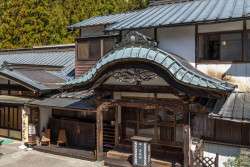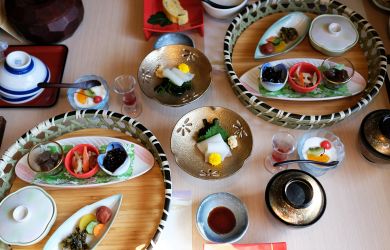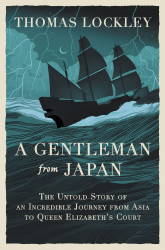
Originally published on metropolis.co.jp on April 2013

In Strong in the Rain: Surviving Japan’s Earthquake, Tsunami, and Fukushima Nuclear Disaster, journalists Lucy Birmingham (Time) and David McNeill (The Independent and The Irish Times) combine their years of experience with an intimate knowledge of Japan to shed new light on the March 11 triple disaster. Written in the months immediately following, Birmingham and McNeill place events in the contexts of culture, history, and politics for an unforgettable read.
The book introduces six Tohoku residents—a fisherman, a housewife, a high school student, a teacher, a public official and a nuclear power plant worker all dealing with the the aftermath of the tragic events. Birmingham and McNeill met each of them while reporting in the region for their respective publications.
With a nod to John Hersey’s Hiroshima, both agree the format is ideal. “Readers can relate to [the people] so easily. It’s the best way to address a huge topic in a small way that gives a really big picture,” says Birmingham.
Choosing which people, though, wasn’t easy. As they talked with a shocked and deeply grieving population displaced by events beyond their control, the stories seemed endless. “A lot of these people were going through post-traumatic stress. Reliving those moments is just so incredibly painful,” says Birmingham. The pair’s gentle persistence and respect for the tragedy endured and gradually drew people out.
The two also use their experience as long-time residents of Japan to untangle the threads of politics, history, and culture in a way that both clarifies and terrifies. They explain why the Japanese media left and stayed out of the nuclear zone, creating a gap quickly filled by foreign journalists with little knowledge of Japan.
“I’ve talked to Japanese reporters who said they wanted to go. They were told ‘If you go, you don’t come back. The government said it’s safe, so it’s safe.’” said McNeill.
They also show how the government, led by then Prime Minister Naoto Kan, tried to delicately balance the information from Tokyo Electric Power Company (TEPCO) with a tense citizenry waiting for answers.
“There is a debate about how much information you should give people in a situation like that. It’s very clear to me that the Japanese media and the government decided quite early on that they were going to limit the amount of information. The message that was coming out was ‘Don’t panic, everything’s OK.’” said McNeill.
The authors delve deeper into problems at nearby reactors such as the little talked about touch-and-go situation at the Daini power plant, just south of the ailing Daiichi plant. It had also suffered damage from the earthquake and tsunami, but was able to be brought under control.
While the media and government emerge, at best, as imperfect heroes, TEPCO is the confirmed villain in this book. Compared to the Tohoku citizens met in these pages, lives forever changed with uncertain futures, the company appears greedy, cowardly, and irresponsible.
“I hope the book will stop people from building any more nuclear power plants. Given this country’s history of earthquakes and now the proven history of lying, cover-up and deceit by the nuclear authorities, it’s too dangerous,” says McNeill.
Strong in the Rain is a snapshot of the disaster, at times as shocking as those photos of a ship perched atop a five-story building. Readers are left with a clear picture of the people who continue to be directly affected by these events. The grief as loved ones are recovered, the selflessness of city officials and volunteers who comforted other members of their communities, the loyalty of the nuclear power plant workers, and the pleas of a mayor abandoned by his government remain long after the last page is turned. As Japan waits for the next earthquake to strike, it is clear there is still much to learn.
Available in major bookstores and via Amazon.co.jp







